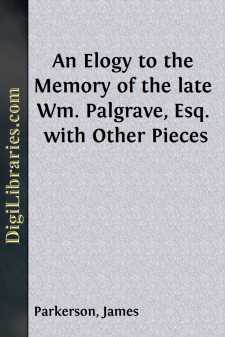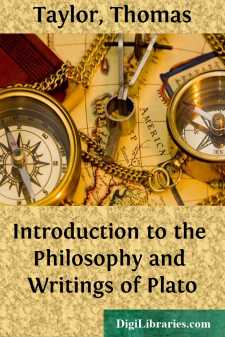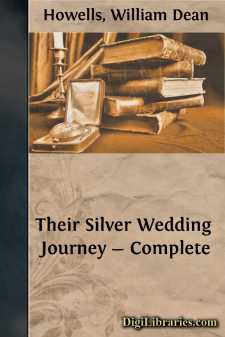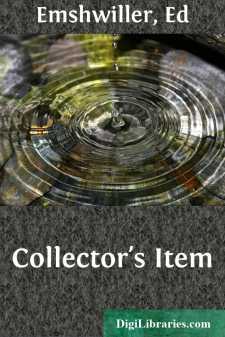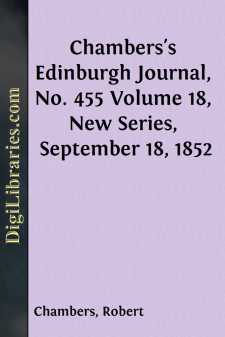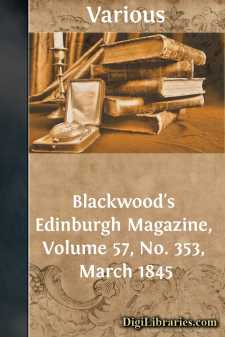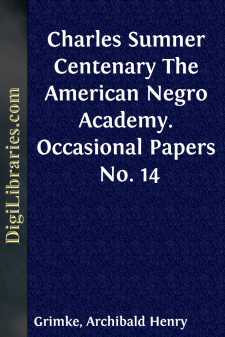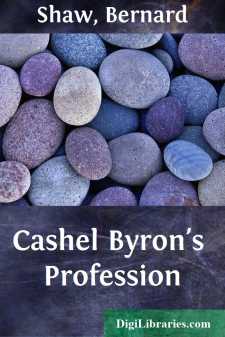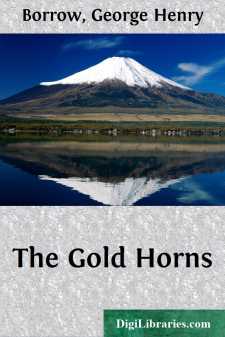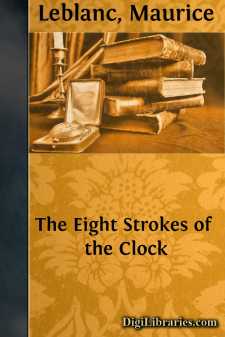Fiction
- Action & Adventure 180
- Biographical 15
- Christian 59
- Classics
- Coming of Age 5
- Contemporary Women 3
- Erotica 8
- Espionage/Intrigue 12
- Fairy Tales, Folklore & Mythology 236
- Family Life 169
- Fantasy 117
- Gay 1
- General 596
- Ghost 32
- Historical 808
- Horror 43
- Humorous 160
- Jewish 25
- Legal 4
- Medical 22
- Mystery & Detective 315
- Political 49
- Psychological 41
- Religious 64
- Romance 159
- Sagas 11
- Science Fiction 730
- Sea Stories 113
- Short Stories (single author) 537
- Sports 10
- Suspense 1
- Technological 8
- Thrillers 2
- Urban Life 31
- Visionary & Metaphysical 1
- War & Military 173
- Westerns 199
Classics Books
Sort by:
by:
James Parkerson
In passing through this vale of tears, That various scenes display;Ambition oft her standard rears, And mortals lead astray. The anxious merchant counts his gain From vessels on the sea;They’re lost upon the watery main, And all his prospects flee. Dejection seize his harrass’d mind, While struggling with dispair;Dame Fortune smiles and proves more kind, His spirits for to...
more...
by:
Thomas Taylor
INTRODUCTION TO THE PHILOSOPHY AND WRITINGS OF PLATO By THOMAS TAYLOR "Philosophy," says Hierocles, "is the purification and perfection of human life. It is the purification, indeed, from material irrationality, and the mortal body; but the perfection, in consequence of being the resumption of our proper felicity, and a reascent to the divine likeness. To effect these two is the province of...
more...
I. "You need the rest," said the Business End; "and your wife wants you to go, as well as your doctor. Besides, it's your Sabbatical year, and you, could send back a lot of stuff for the magazine." "Is that your notion of a Sabbatical year?" asked the editor. "No; I throw that out as a bait to your conscience. You needn't write a line while you're gone. I wish...
more...
by:
Ed Emshwiller
"What I should like to know," Professor Bernardi said, gazing pensively after the lizard-man as he bore the shrieking form of Miss Anspacher off in his scaly arms, "is whether he is planning to eat her or make love to her. Because, in the latter instance, I'm not sure we should interfere. It may be her only chance." "Carl!" his wife cried indignantly. "That's a...
more...
by:
Robert Chambers
A GLANCE AT CONTINENTAL RAILWAYS. When lately making a pretty extensive continental excursion, we were in no small degree gratified with the progress made in the construction and operation of railways. These railways, from all that could be seen, were doing much to improve the countries traversed, and extend a knowledge of English comforts; for it must always be borne in mind that the railway...
more...
by:
Various
In 1821, as a contribution to a periodical work—in 1822, as a separate volume—appeared the "Confessions of an English Opium-Eater." The object of that work was to reveal something of the grandeur which belongs potentially to human dreams. Whatever may be the number of those in whom this faculty of dreaming splendidly can be supposed to lurk, there are not perhaps very many in whom it is...
more...
CHARLES SUMNER. Every time a great man comes on the stage of human affairs, the fable of the Hercules repeats itself. He gets a sword from Mercury, a bow from Apollo, a breastplate from Vulcan, a robe from Minerva. Many streams from many sources bring to him their united strength. How else could the great man be equal to his time and task? What was true of the Greek Demigod was likewise true of Charles...
more...
by:
Bernard Shaw
I Moncrief House, Panley Common. Scholastic establishment for the sons of gentlemen, etc. Panley Common, viewed from the back windows of Moncrief House, is a tract of grass, furze and rushes, stretching away to the western horizon. One wet spring afternoon the sky was full of broken clouds, and the common was swept by their shadows, between which patches of green and yellow gorse were bright in the...
more...
INTRODUCTION Early in the present year Mr. Thos. J. Wise discovered among the miscellaneous MSS. of Borrow a fragment which proved to be part of a version of Oehlenschläger’s Gold Horns. His attention being drawn to the fact, hitherto unknown, that Borrow had translated this famous poem, he sought for, and presently found, a complete MS. of the poem, and from this copy the present text has been...
more...
by:
Maurice Leblanc
ON THE TOP OF THE TOWER Hortense Daniel pushed her window ajar and whispered: "Are you there, Rossigny?" "I am here," replied a voice from the shrubbery at the front of the house. Leaning forward, she saw a rather fat man looking up at her out of a gross red face with its cheeks and chin set in unpleasantly fair whiskers. "Well?" he asked. "Well, I had a great argument with...
more...


